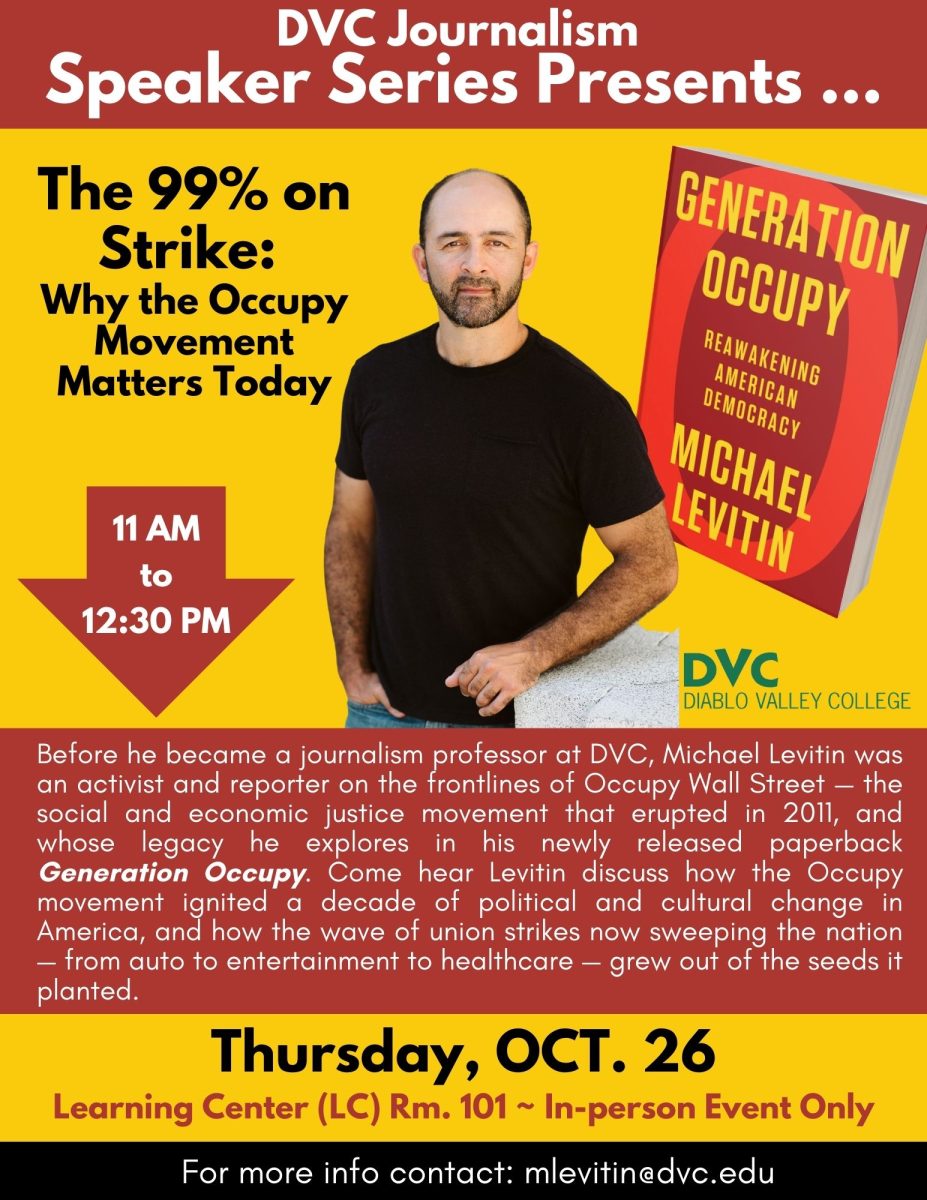In the annals of American history, there are moments that resonate deeply, ones that spark movements and transform societies. Occupy Wall Street in 2011 was one such moment, an eruption of protest against economic inequality that was heard across the nation and the world.
This week, to celebrate the paperback release of his nonfiction book Generation Occupy: Reawakening American Democracy, Diablo Valley College journalism professor Michael Levitin will take the stage here to discuss the enduring influence of Occupy.
His talk, entitled “The 99% On Strike: Why the Occupy Movement Matters Today,” takes place Thursday, Oct. 26, from 11 a.m. to 12:30 p.m. in Learning Center (LC) 101.
Levitin’s insights aren’t just drawn from an academic perspective; he was an active participant in Occupy Wall Street, the spontaneous grassroots movement against corporate greed that began in Zuccotti Park, a few blocks from Wall Street in New York City. Levitin brings a firsthand account to his book, which presents a comprehensive and compelling narrative about the movement and its profound impacts a decade on.
In an interview with The Inquirer, where he serves as the advisor, Levitin encapsulated the essence of Occupy, stating, “This movement was about inequality on an unprecedented scale.” The protesters who camped out at Zuccotti and other public spaces nationwide used the iconic slogan “We Are the 99%” to underscore the divide between the wealthiest 1% and the remaining 99%.
However, Occupy Wall Street was more than a mere protest against Wall Street. It was, as Levitin emphasized, “a rebellion against the whole system” and introduced a new vocabulary for populist economic and political discourse.
The movement’s impacts extended far beyond the immediate protests, altering the course of American society and politics — from Bernie Sanders’ 2016 “political revolution” that reshaped the Democratic Party, to the new generation of social, economic, racial and environmental justice activism it helped spur.
The “culture of protest” ignited by Occupy has persisted, according to Levitin, finding expression in subsequent movements like Black Lives Matter, Standing Rock, March for Our Lives, the Global Climate Strikes, and #MeToo.
In Generation Occupy, Levitin offers a detailed historical account of the movement and its long-term impacts, with the hope, he said, that its legacy will be remembered and better understood.
In the Oct. 26 talk, Levitin said he plans to focus especially on the ways the movement helped jumpstart today’s vibrant labor movement, now visible in the wave of union strikes rolling across the nation.
Generation Occupy serves as a guide to understanding how the movement of the 99% left an indelible mark on American society and rekindled a spirit of grassroots activism. It also points the way for the next generation to stand up, speak up, and strive for a more just and equitable world.
“Young people can help [bring about change] by getting involved and speaking up,” said Levitin.







































































